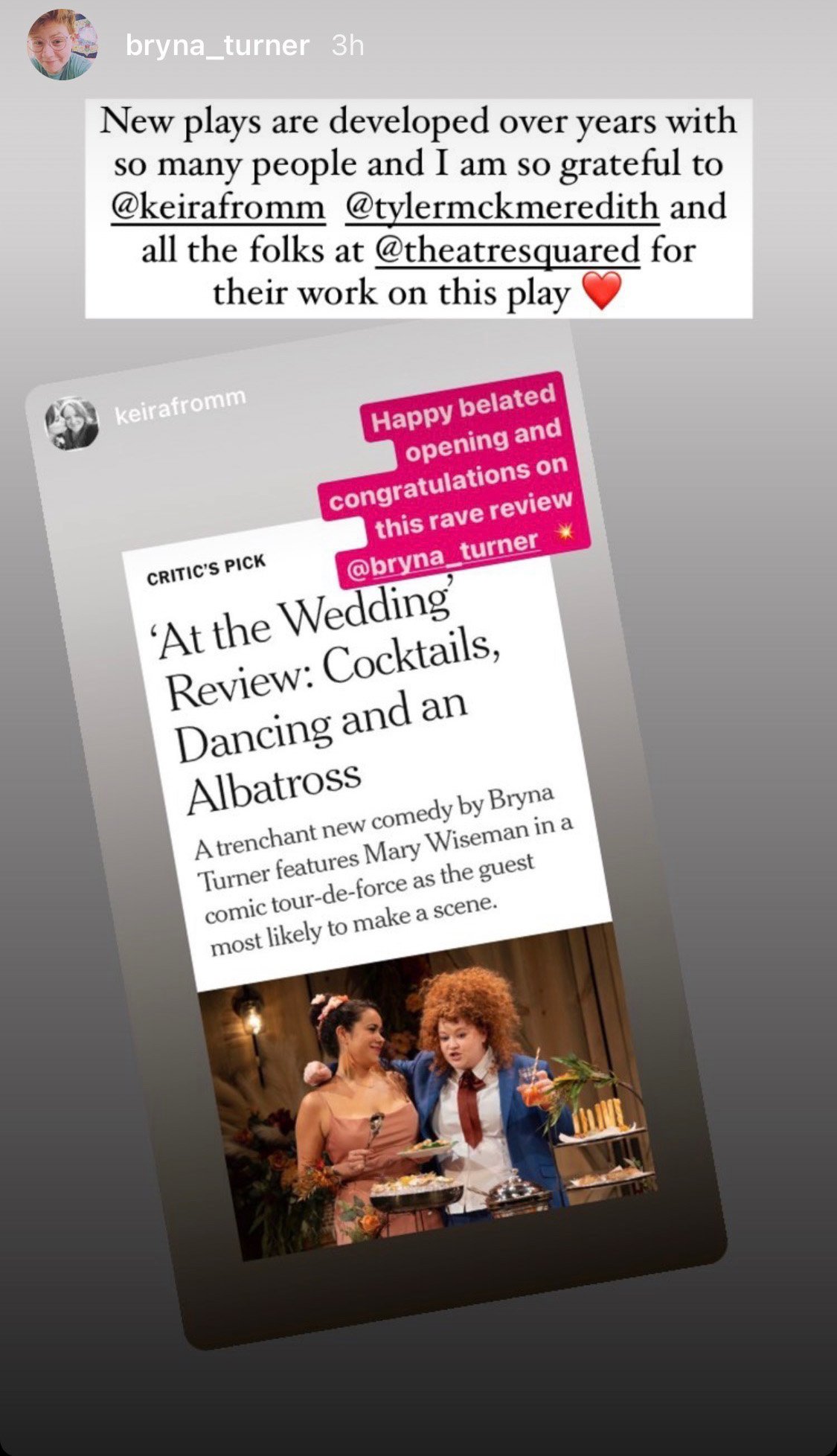"Without development opportunities like ANPF, we would only have bland plays in the world."—Playwright Bryna Turner
The idea behind The Arkansas New Play Festival, now in its 14th year at TheatreSquared, was born at the same time the organization was.
“A lot of professional theaters don’t necessarily have as part of their mission to engender new works — but that has always been part of our mission,” said T2 Artistic Director Robert Ford—a playwright himself—in a 2016 interview. Since 2008, the company has been hosting a number of playwrights and their plays, in various stages of development, for two weeks, offering them a chance to hear their work read in a room with professional actors, directors and dramaturgs. Each week culminates in a staged reading performed in front of an audience. To learn more about how the process fosters and nurtures new work, we talked to playwright Bryna Turner, whose play “At the Wedding” was featured at the 2019 ANPF, received a full production at T2 in 2021, and, this past spring, received its New York debut at the Lincoln Center to rave reviews —including a Critic’s Pick designation in the New York Times.
Playwright Bryna Turner at TheatreSquared
What impact did the Arkansas New Play Festival process have on “At the Wedding”?
I came into the festival with a brand-new draft—I swapped out two old characters for new ones right before boarding my plane. Bob Ford didn’t bat an eye. He immediately fired two actors (including a child!) and hired two new ones before my plane had even landed. I spent the first week figuring out how the new characters affected the play, then I got to hear it read in front of an audience. To my great surprise, I discovered that with those scenes finally working, I could now hear that I needed to make changes in the others. Over the second week, I brought in multiple different revisions to the older scenes and we tried them all out.
How beneficial is it to you as a playwright to hear your play read in front of an audience? What did it teach you about this particular script?
I truly believe you cannot understand your play until you hear it read aloud in front of an audience. At the Wedding felt like a tricky play because it’s a comedy about a queer woman behaving badly at her ex’s wedding. I was afraid that audiences wouldn’t empathize with her and that the comedy would fall flat. We had a full house in Fayetteville and I was terrified. But the audience loved it. I learned that I didn’t have to be afraid—my character was human and compelling, and the audience was willing to follow her wherever she wanted to go.
In the talkbacks, I asked the audience members to tell me what the play was about. I got answers that touched on every theme that I had dreamt into my little play. It was one of the best experiences I’ve ever had as a writer. It has helped me become braver in my writing, less afraid of being misunderstood. I was able to go deeper into my next drafts without worrying about the comedy.
Was the feedback you received from the festival actors, director and audiences helpful?
The collaborative spirit and love of discovery was palpable in the rehearsal room. At one point, the actors improvised a scene that was so funny that I went away and wrote my own version of it down—it remains one of my favorite scenes in the finished play.
Several high profile play development programs have closed over the past year or two. Why is it important for programs like T2's ANPF to keep going?
Writing a new play is like developing a recipe. You can fiddle with it on paper as much as you want, but you won’t know what you’re making until you actually put the ingredients together. Development opportunities allow you to taste your creation as you work on it. This is how you discover what the play is, how the play works, and what the play needs to get better. Without development opportunities like ANPF, we would only have bland plays in the world. Artists need time and space to try out bigger and bolder ideas—time to make a real mess before finding something that works.



